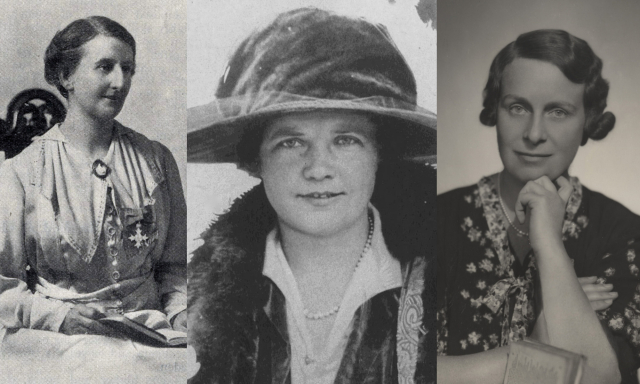Early British Women Engineers
Magnificent Women and their Revolutionary Machines

Pioneering women
In this podcast Henrietta Heald looks at some of the pioneering British women engineers of the early 20th century and the role they played in fighting for economic freedom.
'"Women have won their political independence. Now is the time for them to achieve their economic freedom too."
This was the great rally cry of the pioneers who created the Women's Engineering Society in 1919 - the world's first professional organisation dedicated to the campaign for women's rights. Henrietta Heald is the author of William Armstrong, Magician of the North, a biography of the Victorian inventor, engineer and industrialist who created Cragside in Northumberland, the first house in the world to be lit by hydroelectricity. While researching the great age of Victorian engineering, she came across Charles Parsons, the inventor of the compound steam turbine, and learnt that his wife and daughter, Katharine and Rachel Parsons, were also engineers and the principal founders of the Women’s Engineering Society. It was this discovery that sowed the seeds of Henrietta’s latest book, Magnificent Women and their Revolutionary Machines.
To learn more about the wonderful opportunities available in engineering please go to the Women's Engineering Society website.
1. What drew you to this subject and this group of women?
2. What drew you to the subject of engineering?
3. What sources did you use? Did you have any difficulties doing your research?
4. What early examples do we have of women in Britain working as engineers, scientists and mathematicians in the 18th and early 19th century?
5. What was the impact of World War I?
6. Can you tell me about the lives of Katharine and Rachel Parsons? What were their aspirations?
7. What role did they play in progressing opportunities for women?
8. The battle in Parliament.
9. Can you tell me about Caroline Haslett? How did her career develop?
10. Laura Annie Willson.
11. Viscountess Rhondda.
12. Why should we remember these women?
13. How have opportunities for women who want to be engineers changed since the time of Rachel Parsons and Caroline Haslett?
In order to access the full content of the podcasts please Login or Join the HA.

